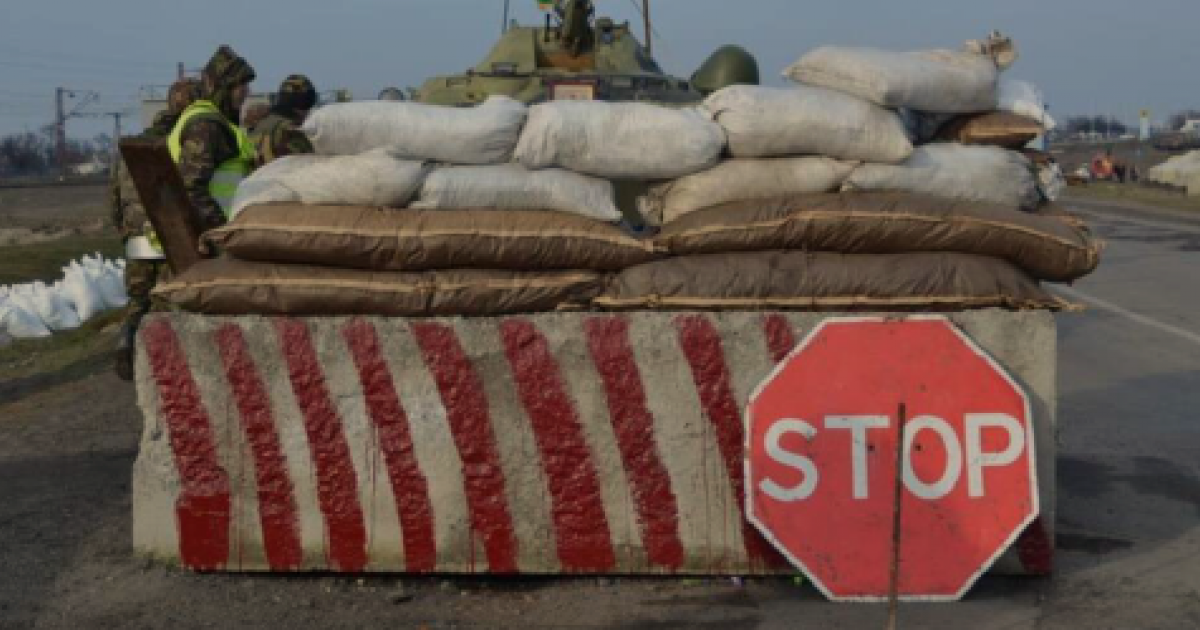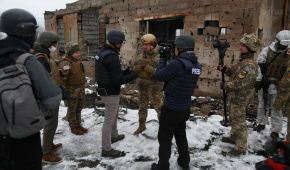Recommendations for journalists and activists who find themselves in temporary occupation or mousetrap
16.03.2022, 15:20
- What is "temporary occupation". "Temporary occupation" means places and locations to be taken under full control of by the occupying forces implementing the police functions (raids, arrests, searches, etc.), control of civilian movements, verification of documents and personal searches and other.
- What is "mousetrap". The "mousetrap" is to be separated from the territories controlled by the Ukrainian government, but with no full control by the occupiers in the region. The area may be occupied by the invaders, but they do not have the opportunity to make total purges, raids and inspections, to fully control it.
Physical security
- Travel Precautions : Do not share your personal travel plans. If you need to tell someone your location, do so through a secure communication channel and make sure your recipients don't share this information.
- Communication: Establish a communication schedule with one or two people. Send a message about your situation at the appointed time. Try to stick to this schedule as strictly as possible. Decide what action should be taken if you do not get in touch. Remember that the connection in the combat zone is unstable, and there is no place to charge the phone, so the lack of communication does not always mean death.
- Agree on a conditional phrase that can indicate that your connection is under the control of the enemy. This phrase or question should be neutral and everyday so that the outsider cannot understand which of the answers is correct. For example: "Which of ours is in the office now?". The wrong answer will mean that you are under the control of the enemy and can not communicate freely.
- Keep documents proving your non-combatant status on you. But remember that the Russian Federation withdrew from the protocols to the Geneva Convention relative to the Treatment of Civilian Persons in Time of War in 2019. According to IMI monitoring, they are deliberately and purposefully attacking journalists, both Ukrainian and foreign. So, keep in mind that a press card or editorial certificate may put you at greater risk than a regular passport.
- Cash and Payments: Don't keep all your cash in one place. Divide it between a personal bag, pockets, shoes, luggage, etc. Limit the amount of hard currency in your wallet - this is the first place to look. In places where this is allowed, always pay in cash, not by card. But remember that at present the invaders do not have the ability to track banking transactions.
- Emergency contacts / support: write down numbers, passwords on a piece of paper and keep it out of reach. It is not advisable to hide in shoes - the occupiers suffer from poor quality shoes, and can take away your boots without even suspecting that there are hidden phones. It is safer to hide in clothes, etc.
- Be sure to have a spare fully charged phone, turned off and hidden so that it is difficult to find, with a connected and activated SIM card. The occupiers are looking for and smashing and shooting phones, so you may be left without communication if you do not have a spare means of communication.
- Do not leave photos and videos you took while working on your phone. Try removing the memory card and replacing it with one that does not contain such materials. Occupiers sometimes try to check the memory of the device.
- Proof of life: create a document or questionnaire with your personal data. Only people close to you should have access to this document. This is confidential information that only you know and that can be used to verify that a person is alive in case of abduction, or detention.
- Communications and device security. Remember that in the combat zone, communication capabilities are limited due to significant damage to the mobile relay network and lack of electricity. Note that there may be times when it will not be possible to charge the phone. So be sure to have a powerbank or other similar device that you will use only as a last resort.
- The best messaging options. The main thing is to exchange messages via the Signal application (take care of setting up missing messages for most default chats). Additional - for example, a direct call to a mobile or SMS message.
Liked the article?
Help us be even more cool!
Help us be even more cool!



